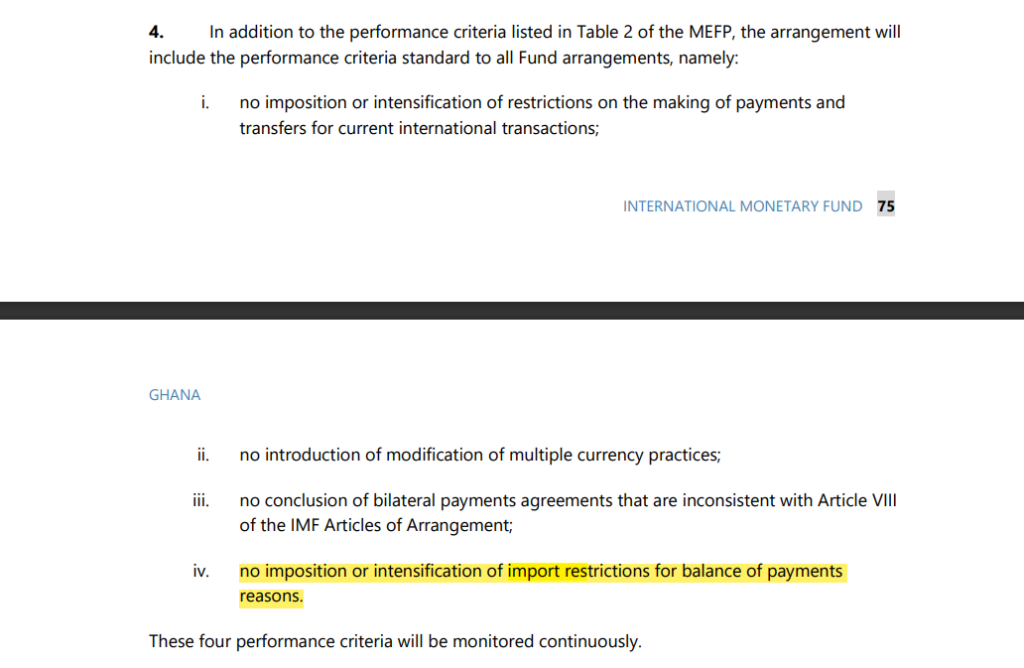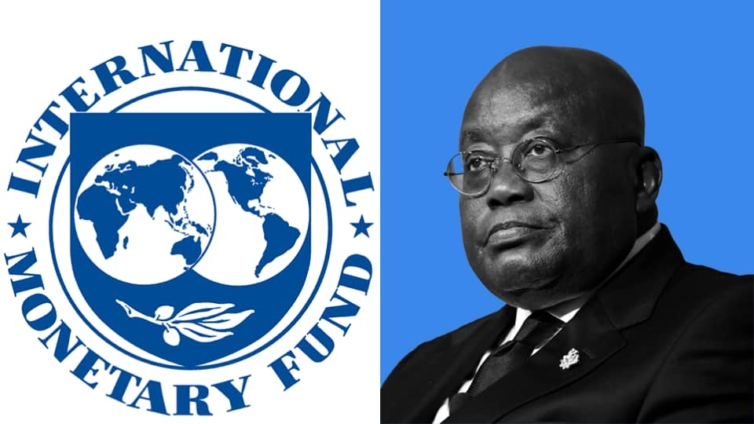The International Monetary Fund (IMF) has made it clear to the Government of Ghana that it cannot impose or intensify import restrictions for balance of payments purposes.
This is an agreement contained in the IMF bailout package which has pledged to support Ghana’s balance of payment with some $3 billion between 2023 and 2026.
“No imposition or intensification of import restrictions for balance of payments reasons”, the Fund stressed on page 76 of the programme document. Amongst other things, there are four decisions the Government of Ghana cannot take while it is still under the IMF programme. These decisions align with performance criteria common to all Fund arrangements, which include:
- No imposition or intensification of restrictions on making payments and transfers for current international transactions.
- No introduction or modification of multiple currency practices.
- No conclusion of bilateral payments agreements inconsistent with Article VIII of the IMF Articles of Arrangement.
- No imposition or intensification of import restrictions for balance of payments reasons.
The Fund emphasised that these four performance criteria will be monitored continuously.

The Government of Ghana on Thursday made a surprising suspension of the decision to put the L.I. before parliament, which sought to place the importation of 22-listed products under restrictions. It had tried on three occasions, without success, to lay the bill before the house.
The Minority in Parliament urged President Akufo-Addo to immediately withdraw the regulation seeking to restrict the importation of rice, cement, fish, sugar, guts, bladders, and animal stomachs, known as 'yemuadie'.
The Trade Minister, K.T Hammond, who was pushing this regulation hoped it will help the cedi appreciate as well as help grow local industries.
Per the proposed regulation, any person seeking to import the selected products would have been required to obtain permission from the Trade Minister.
Ghana’s import bill according to Finance Minister Ken Ofori-Atta, exceeds $10 billion annually and is accounted for by a diverse range of items including palm oil, toilet roll, and even toothpick. While Ghana needs over $500 million to import rice, the trade minister says the importation of ‘yemuadie’ cost the state some $164 million in imports.
Latest Stories
-
Life is improving in Nigeria, Tinubu says
36 minutes -
BoG likely to maintain status quo on policy rate – Deloitte
37 minutes -
Plane carrying Liberian president involved in landing scare
40 minutes -
Closure and reopening of Ghana’s embassy in Washington D.C. – A needless embarrassment to Ghana
56 minutes -
Today’s Front pages: Friday, May 30, 2025
58 minutes -
Friday, June 6 declared public holiday for Eid-ul-Adha
1 hour -
Bawumia: A Great Asset to the NPP, and a Ready-Made Leader in Waiting for Ghana
1 hour -
Once-shunned Ghana bonds deliver best returns in May
2 hours -
Harvard agrees to relinquish early photos of enslaved people, ending a legal battle
3 hours -
Free Zones Authority gets new board, Trade Minister chairs
3 hours -
Explainer: Why one dollar can’t be one cedi
3 hours -
NRSA to sue MMDAs for unlawful siting of billboards
3 hours -
Government to train MMDAs to use data for planning
3 hours -
Effutu NDC sympathizers protest Mahama’s new MCE nominee
3 hours -
BoG urges deep structural reforms for economic reset
3 hours

